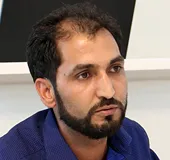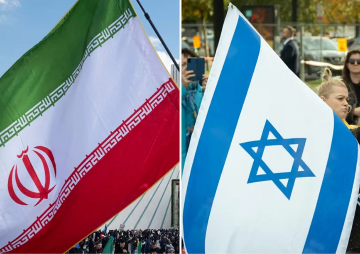
More than 150 countries around the globe are facing the wrath of Coronavirus pandemic that started in Wuhan of Peoples Republic of China. The pandemic has so far infected more than 4,00,000 and killed thousands. The fear and panic of this deadly pandemic has forced countries to enforce lockdowns in cities, provinces, districts to enhance social isolation, the only sure-shot remedy to stop the rampant spread of the virus. Despite some shortcomings, the collective approach towards this pandemic in the Kashmir Valley is far better than many other parts of India.
As the number of cases in India is rising, Kashmir also reported its first positive case on 18 March. The patient, who resides in Khanyar area of Srinagar, had an international travel history before he returned home on 16 March. Within no time all, business establishments, private and public transport was halted and surveillance was started in a radius of 300 meters of the patient’s home. In an effort to contain the spread in the Srinagar district, the administration constituted more than 21 medical teams for house to house inspections to collect data and trace down anyone who had come in contact with the patient. The teams were well-equipped with protective gear and diagnostic equipment for the conduct of operations. To disinfect the area, Srinagar municipal corporation conducted a thorough sanitisation exercise as per the global standard operating procedures. The number of positive cases reached eight on 25 March, five of whom, reportedly had participated together in a religious event. The administration took no time to sanitise the areas and collected each patient's travel history and traced all local contacts.
The administrative set up is working relentlessly in every district of Kashmir to contain the spread of COVID-19. Medical teams numbering four to five persons are set up to locate the people who came from outside the state or from any foreign country. These teams, with the help of local medical workers and civil society members have traced, tested and even quarantined suspected cases for the last two months. These teams are being actively assisted by civil society members and village/Mohalla heads to trace the people who have recently visited any foreign country or any other state of Union of India for conducting check for symptoms of the disease. If any suspected COVID-19 case tries to escape or hide his travel history, the whole administration comes together to trace them down and put them under quarantine for the mandated period of 14 days. According to government of Union Territory of Jammu and Kashmir, till 25 March, 5,124 travellers/persons who came in contact with suspected or positive cases were put under surveillance. As many as 3,061 were quarantined in homes or facilities operated by government, while 80 suspected cases were quarantined in hospitals and 506 completed their surveillance period.
The disease has also triggered other positive transformations in the administration that were neither witnessed in the history of the erstwhile state of Jammu and Kashmir, nor effected despite promises after the abrogation of Article 370 after 5 August 2019. For the first time the tertiary care hospital in the Kashmir Valley has upgraded its hitherto poor critical care facilities. The hospital has been equipped with ventilators. On 20 March , the Sher-e-Kashmir Institute of Medical Sciences (SKIMS) received 20 new ventilators out of the 50 which have been approved for purchase. These ventilators will be installed in the isolation ward where critically ill COVID-19 patients need support.
With curfew-like restrictions from 19 March all over the Valley, Srinagar Municipal Corporation (SMC) on Saturday deployed another 100 mobile sensitisation units in addition to existing squads to sterilise the whole city. According to SMC, “around 27,000 to 30,000 litres of Quaternary Ammonium Compounds (QAC) will be sprayed at vulnerable spots every day,” to prevent the coronavirus from spreading. The Doctors Association of Kashmir (DAK) have also published a list of doctors who will provide online consultations to patients through WhatsApp or telephonically. According to president of DAK, Dr Suhail Naik, online consultation will limit the visits to hospitals, which are generally high-risk environments for people who are suffering from similar symptoms but are not tested positive. As the nation enters 21 days lockdown on from 25 March following Prime Minister Narendra Modi’s announcement, administration in Kashmir are starting home delivery system of essential services in Kashmir for the first time in the history of conflict.
The determined steps taken by the administration is also being applauded by the people. Many feel that this is for the first time that New Delhi has made an honest attempt to fulfill its promise to give Kashmir better administration, good governance and end the VIP culture, which was promised in return of the decision to annul Article 370 and robbing the erstwhile state of its special Constitutional privileges.
In a survey done by ORF in 2017-18, 64 percent of the respondents had highlighted poor governance and administrative apathy as the major contributing factors for the unrest and revolts seen in the Valley since 2008. Sadly, despite the administrative reforms as witnessed in the state’s efforts to contain the coronavirus, the VIP culture of Kashmir’s political elites and administrative officials seem to have remained intact till today. For example, a top police official in Kashmir let his mother-in-law slip out of a VIP exit at the Srinagar airport to evade quarantine. A resident of one of Srinagar’s most densely populated areas, she was later tested positive, making millions of residents in the Valley vulnerable to the virus. According to a paramedic posted at airport, the woman needed controlled quarantine for at least 14 days, but was allowed to go home. After this serious breach of protocol, the director of the Srinagar Airport closed all the VIP gates and ensured 100 percent screening and quarantine, but it was more of a case of shutting the doors of the stable after the horses had bolted.
The welcome and positive transformation of administration in Kashmir in its efforts to prevent the spread of COVID-19 has brought forth collective efforts of doctors, SMC workers, municipalities, district administrations. The people of Kashmir and especially the youth, have recognised this as a positive move by New Delhi. The Centre must now consolidate the largely-receptive mood in the Valley and gain more trust of the people — especially the youth, by resuming 4G data services to enable people get timely updates on coronavirus. Besides, it will be a huge relief for the youth and students as they can use the internet for studies as well as entertainment in the era of city lockdowns.
The views expressed above belong to the author(s). ORF research and analyses now available on Telegram! Click here to access our curated content — blogs, longforms and interviews.




 PREV
PREV

